March 16, 2020. A full year has passed since a gunman walked into two Christchurch mosques, killing 51 people.
For the past several months four women who were left widowed by the attacks, have allowed us to walk alongside them as they grieve, welcome new life, and begin to build vastly different futures to the ones they had imagined.
<<< Previous Episode | Index | Back to Episode 1 >>> | Sentencing: Seeking Closure >>>
Subscribe to Widows of Shuhada for free on Apple Podcasts, Spotify, Stitcher, iHeartRadio or wherever you listen to your podcasts
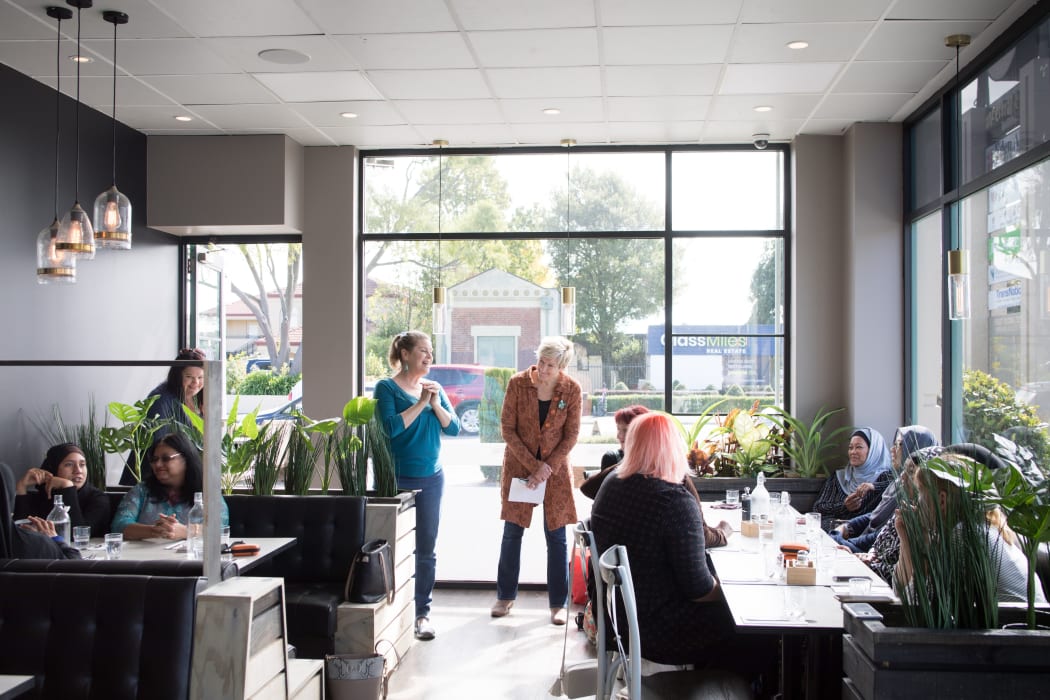
Photo: Copyright Janneth Gil
Three of the widows and their supporters gathered with the podcast team on March 16, 2020. The lunch was held to thank the women for allowing us into their lives for the Widows of Shuhada series. They had hoped to discuss the commemoration service, but that was cancelled due to coronavirus fears. Instead, the women spent March 15 in quiet reflection.
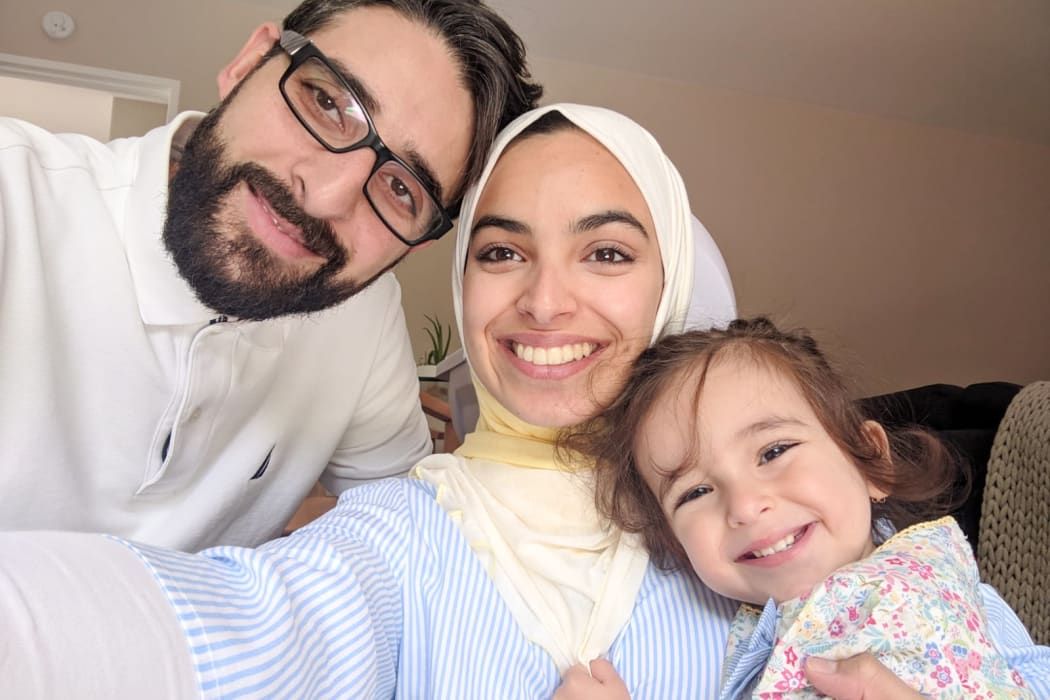
Photo: Photo / Farah Talal
Farah Talal, who is currently based in Jordan with her daughter Aya, has taken comfort from passages in the Quran which talk about 'The Book'.
"Ever since March, I've really understood what these verses meant and how our lives are actually a book and it's basically chapters and how one chapter's closed another is opened," she said.
"Some people leave and their part in this chapter ends and other people enter your life. And the way you live your life is the way you write it."
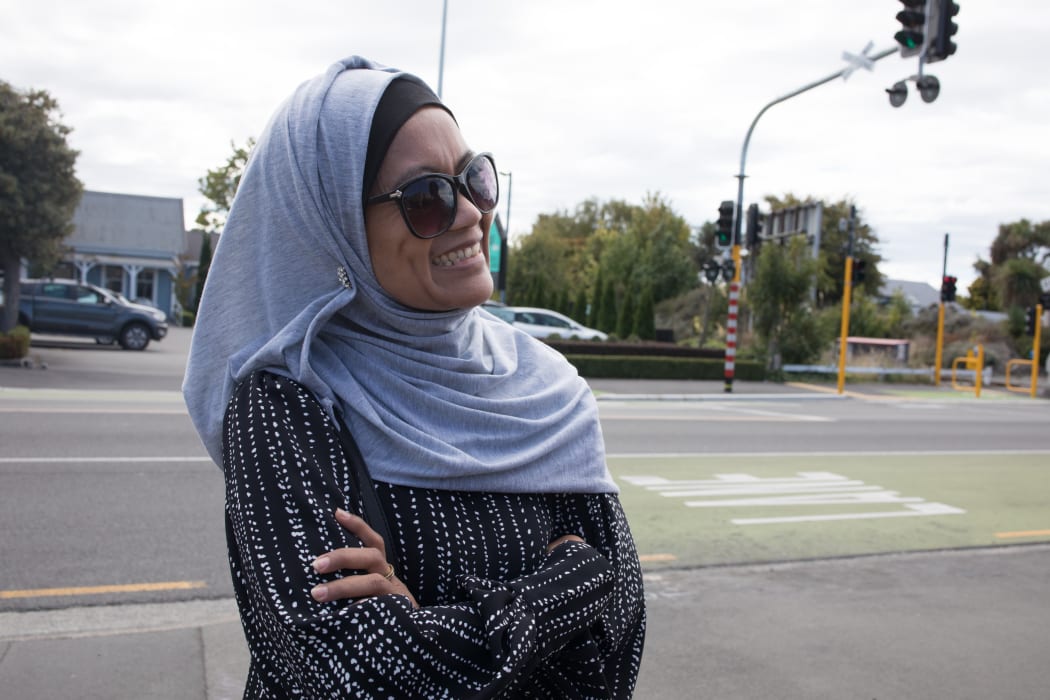
Photo: Copyright Janneth Gil
Hamimah Tuyan was reluctant to take part in the Widows of Shuhada podcast series, but felt she needed to use the platform she was being offered to fight ignorance and fear.
"We should live stream how happy we are to these people [white supremacists]," said Hamimah, "If they're trying to put fear into our hearts they have just done the opposite. We're going to move on, but they're still stuck in their dark worlds."
Hamimah said if people have questions about Islam they should talk to a real person, a Muslim, and educate themselves.
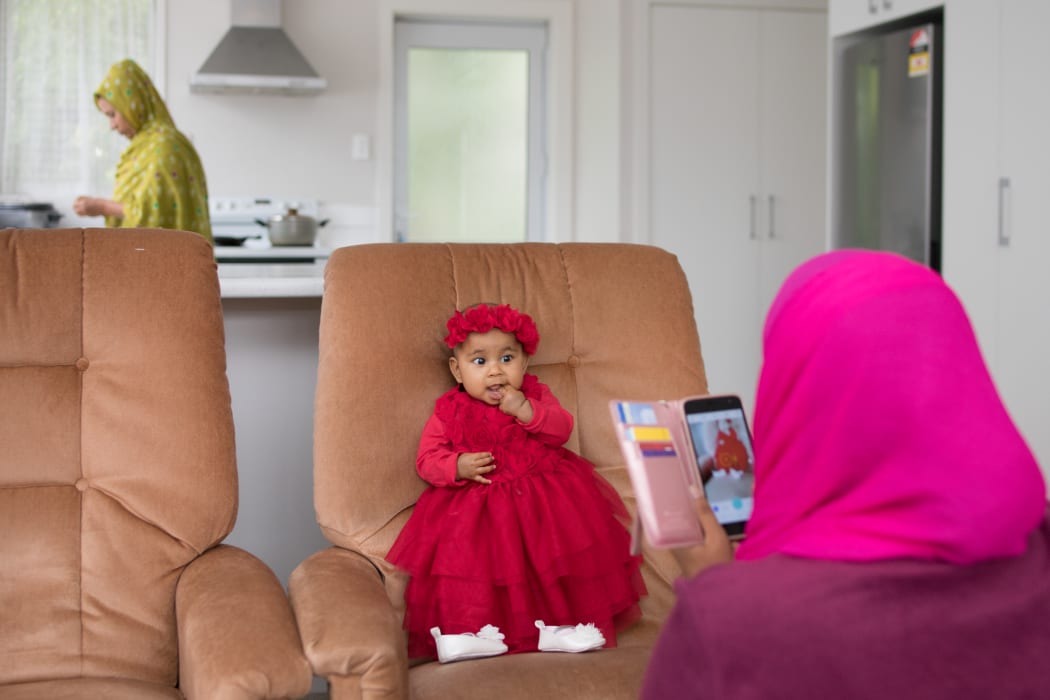
Photo: Copyright Janneth Gil
Much has changed for Sanjida Neha Jaman since March 15, 2019. She became a widow and a mother. She now has her own house and her mother and brother have arrived from Bangladesh to support her. Neha recognises how good her life is, but she's sad because her husband is not here to share it.
"[Initially] I want to go to trial, cause I want to see this man who killed my husband, who killed Noor's father, who killed Farouk's dream. But now... I'm thinking is that good for me or bad?," she said.
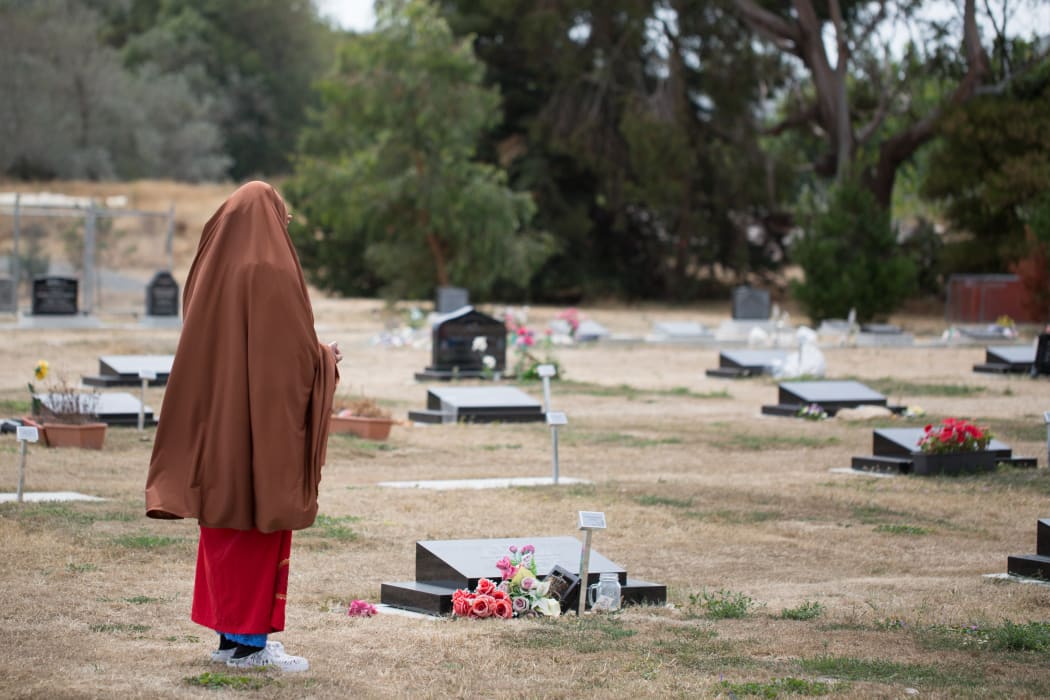
Photo: Copyright Janneth Gil
Mahubo Ali Jama is still struggling with her grief. She has had some breakthroughs, but she still has some major obstacles to overcome, like the plaque on on her husband's grave. Muhubo and some family friends have been working to have the headstone removed, unfortunately progress on this has been hampered by the coronavirus lockdown.
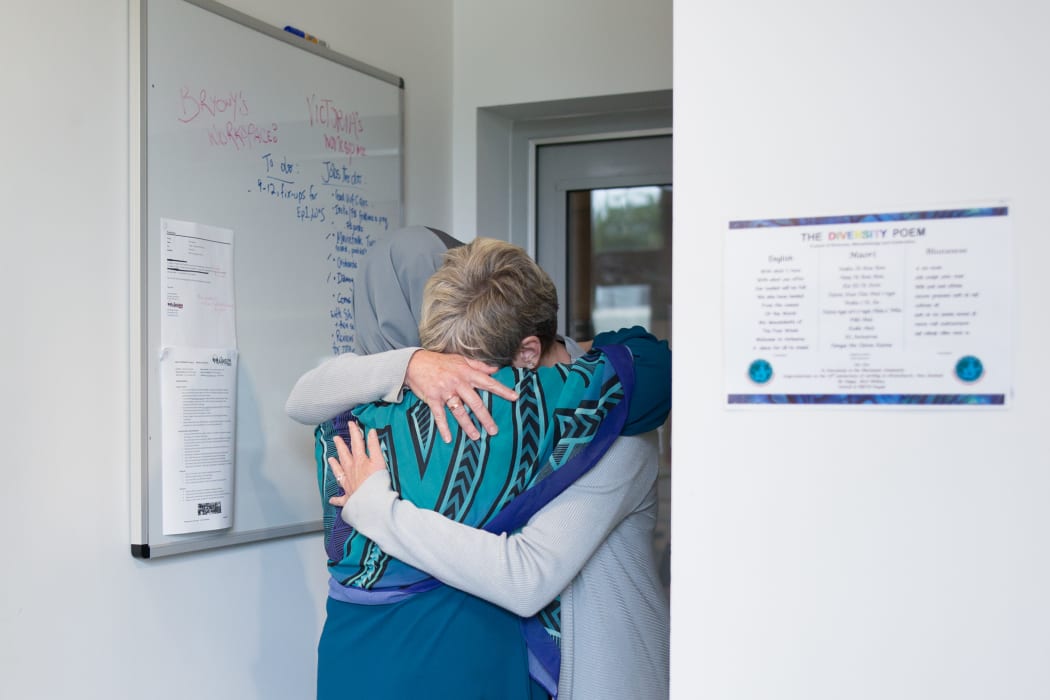
Photo: Janneth Gil
Making this podcast hasn't been easy for the four widows. Having to discuss their feelings every few weeks, knowing thousands of strangers will likely hear their innermost thoughts, was difficult at times. But they hope by speaking out, people will understand a bit more about Islam and of course, will remember their husbands and the other shuhada (martyrs).
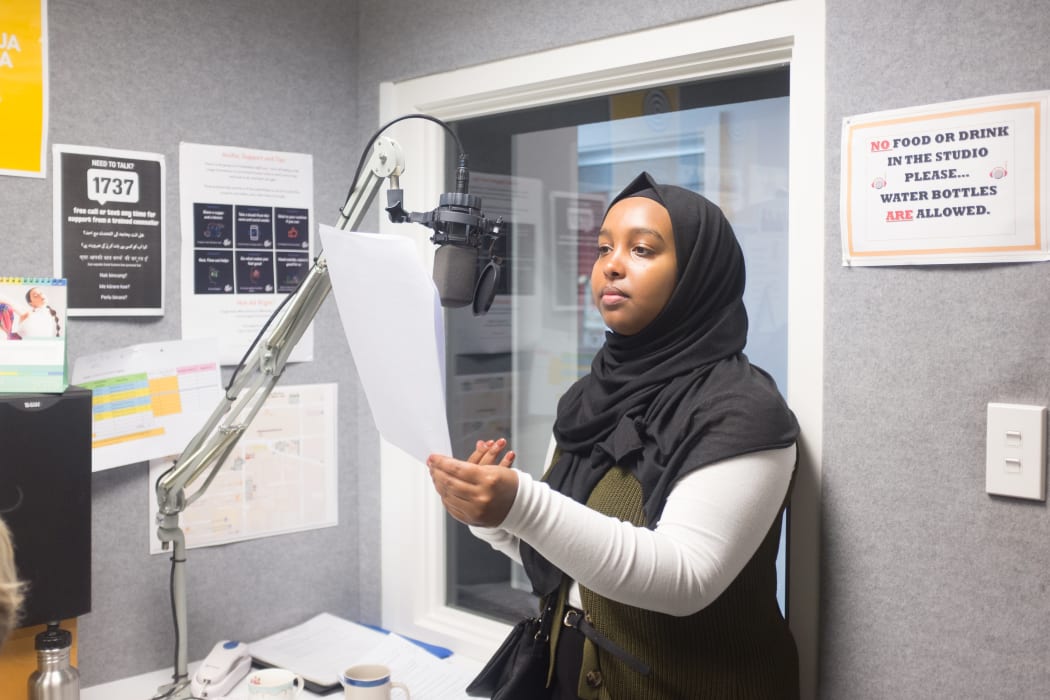
Photo: Janneth Gil
Host and production assistant Asha Abdi is a student at the NZ Broadcasting School in Christchurch. She hopes that more NZ Muslims can be involved in broadcasting to give a more diverse voice to mainstream media.
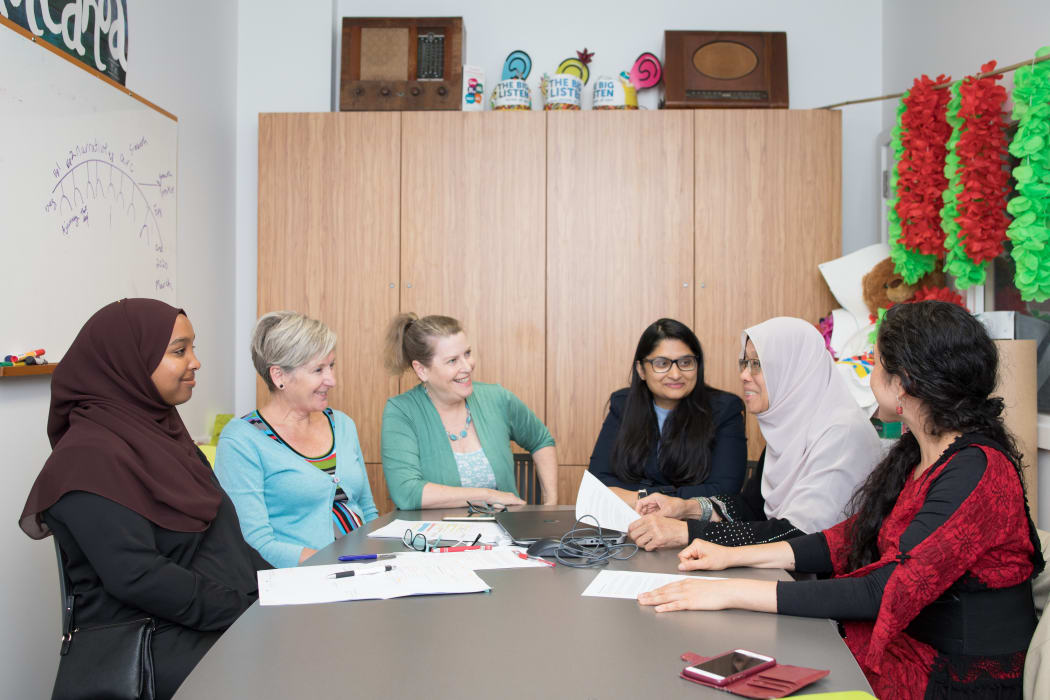
Photo: Janneth Gil
From left to right: Narrator / Production Assistant: Asha Abdi, Lead Producer / Project Manager: Lana Hart, Executive Producer: Nicki Reece, Researcher / Production Assistant: Asma Azhar, Religious and Cultural Advisor: Jumayah Jones, Women’s Coordinator for Al-Noor mosque during the March 15th tragedy, Social Documentary Photographer: Janneth Gil
The team that made the series would like to thank Farah Talal, Hamimah Tuyan, Sanjida Neha Jaman and Mahubo Ali Jama for letting us walk alongside them for the past year.
And to the 51 shuhada (martyrs):
Inna lilla wa Ina ilaihi rojiun
“we came from Allah, and to Allah we return.”
[click here for more episodes]

Plains FM Photo: Plains FM
Widows of Shuhada is Produced by Community Access Radio Plains FM for RNZ and follows four Muslim women widowed by the Christchurch mosque attacks who share their journeys through grief and take steps towards a different life.
| Twitter: @plainsfm |

Photo: RNZ/NZ On Air

